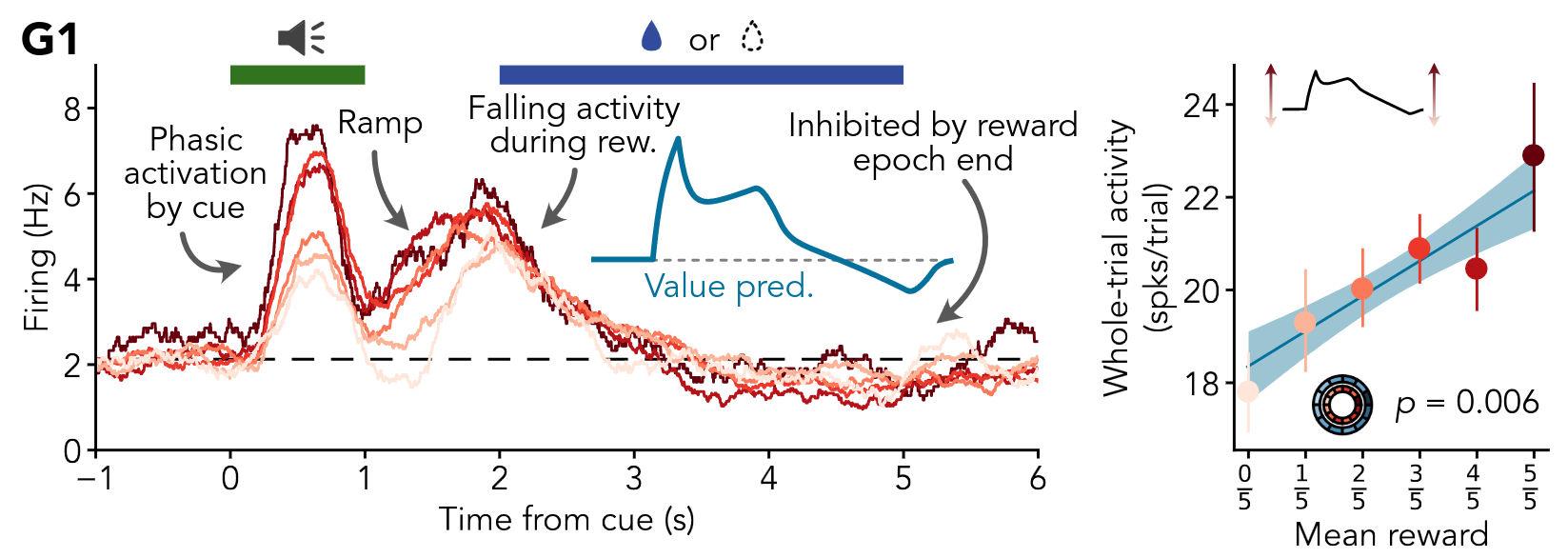New preprint: Serotonin predictively encodes value
Serotonin is an enigma. It is at once implicated in virtually everything, but responsible for nothing.
— Barry Jacobs and Casimir Fornal, 1995
The in vivo activity patterns of serotonin neurons are notoriously difficult to understand. Does serotonin signal reward or punishment? Yes. What about surprise? Yes and no. Uncertainty? Certainty. It's enough to make your head spin.
Here I introduce a simple new theory of serotonergic activity: serotonin signals a mixture of future reward and its rate of change. This idea combines insights from my recent work on the physiology of the dorsal raphe nucleus (where the forebrain gets most of its serotonergic input) with reinforcement learning to make sense of
- why serotonin neurons are activated by both rewards and punishments,
- why they are activated more strongly by surprising rewards but have no such preference for punishments, and
- why negative uncertainty does such a good job of explaining slow changes in their activity.
On top of helping to explain some confusing results, the new theory predicts the moment-by-moment activity of groups of serotonin neurons with higher accuracy than I could have asked for. Pinch me!

Read the full article on bioRxiv.